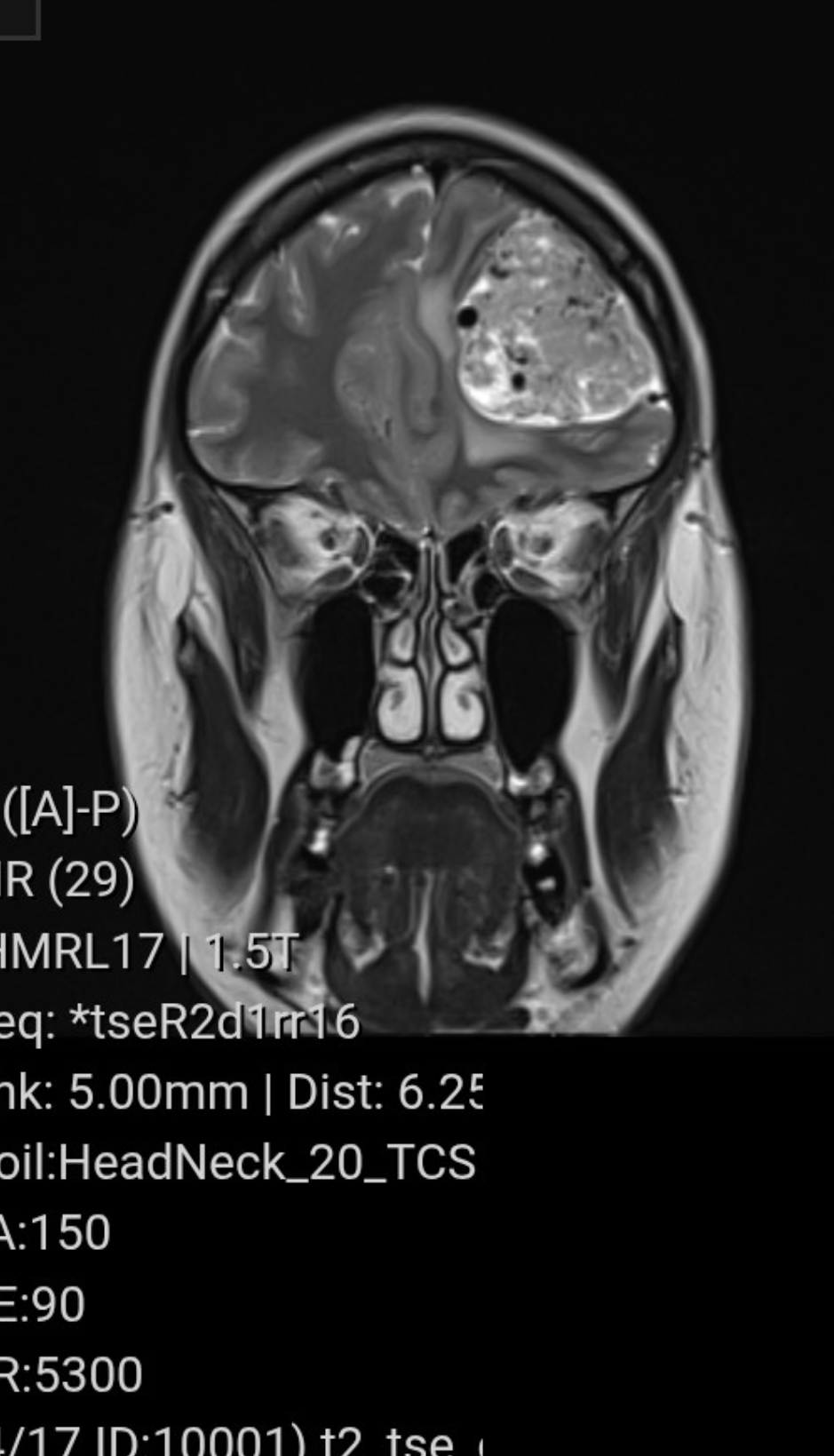Brain tumour dismissed as a migraine
Nikita Sterling, from Rainham, had two or three migraines a year from the age of 18. But 20 years on they became more frequent and increasingly severe. By October 2024 the pain became so intense that she would sometimes black out.
Despite numerous visits to doctors, her concerns were repeatedly attributed to “migraine hangovers” or hormone changes.
Nikita said: “Sometimes I was blacking out during the migraines. I was also experiencing intense head pressure multiple times a day which stopped me in my tracks.
“I’m a secondary school teacher, and when this happened, I just had to sit and wait for it to pass. These episodes would happen upwards of 20 times a day as the months progressed and range from 30 seconds to 10 minutes.”
Nikita, who has two children with her husband Dean, saw her GP many times and was told it was “just a migraine” or a “migraine hangover”. But during a parents’ evening in January, she knew it was more than that.
Paying for her own brain scan
Nikita recalled: “I knew I needed to say something to the parent but the words I needed would not come. The next day I went to the GP again and they suspected a mini stroke. They referred me for a CT scan. I felt I was now being listened to. But then a letter arrived from a consultant I had never met saying no CT scan was needed as – again – I “just had migraines”. I was devastated to be back to square one.”
In February this year, Nikita used her husband’s private health care plan to see a neurologist. The first appointment she could get was in May, three months away, but she was just happy to have a date in the diary to speak to someone.
However, her symptoms got worse before that appointment took place. After experiencing five of the worst migraines on consecutive days in March, and after pleading for a GP appointment to no avail, her husband, Dean, rushed home from work to take her to hospital.
Nikita said: “I was triaged and sent to the out of hours clinic and not A&E. I was in so much pain I didn’t even realise this was the case. Six hours later, I saw a doctor who told me he couldn’t do anything to help me.
“He implied it was probably related to my menstrual cycle which infuriated me as so many health professionals are quick to put everything down to women’s hormones. He told me to get my eyes tested, go for a blood test, ask my GP for a lumbar puncture and, after all that, ask for an MRI.”
Nikita felt ‘hopeless’ but booked the blood test and eye check-up. She was never told her blood test results and the optician said her vision was fine. But the following week she was, once again, crippled with migraines. As she was due to go on a large family holiday, her sister convinced me to book and pay for her own MRI scan. She hoped it would provide reassurance that nothing was seriously wrong.
Brain scan reveals a tumour
Nikita had the scan on 2 April. Two hours later, the clinic called and told her to go to straight to A&E. They said they’d send the scans ahead.

“A few hours later I was told I had a large mass on my frontal lobe. I was shown the scans and broke down in tears. This was a mix of fear and relief that finally I was going to be listened to.”
Nikita was kept in hospital for four days. She had a contrast MRI and a CT scan to see if anything had spread to other parts of her body. Fortunately, it hadn’t. She was prescribed steroids to reduce the swelling, and her scans and doctors’ reports were sent to King’s College Hospital in London.
Three days later, a neurosurgeon talked her through what surgery to remove the tumour would involve, and the risks too. such as the potential impact on her speech.
The neurosurgeon said the scan looked very vascular, which was more common in cancerous tumours, so Nikita feared the worst. But a long, anxious three weeks later, the tumour was removed and a biopsy showed it was a grade one meningioma.
Nikita said: “The wait to find out what it was, was awful. I have two small children and could not stop thinking about them if this tumour turned out to be cancerous.
“I am still recovering from the surgery. The fatigue is the worst part as I struggle to just get through a day without falling asleep. It’s also hard to think about the extent to which I was ignored by my GP practice (I have since moved to another) and how if I was listened to, I would not have had to experience the months of agony that I did. But my outlook is positive.
How to advocate for yourself if you have a brain tumour
Nikita’s experience is not uncommon, which is why The Brain Tumour Charity provides information, including tips on what questions to ask your doctor, on our support pages.
The NHS website also explains where to find support with advocating for your healthcare needs.
One thing this experience has taught me is to assertively advocate for myself and family when it comes to our health. I am fortunate that I was able to afford to pay for my own MRI and frequently wonder how many other people are experiencing what I had to go through without the option to do the same. My heart breaks for them and for those less fortunate than me who do not get to hear that their tumour is benign.”
Nikita
Climb the Capital
Dean, Nikita’s husband, is now taking part in the “Climb the Capital” challenge to raise money for The Brain Tumour Charity and help support more people experiencing what may be the worst time in their lives. He works in one of the buildings involved so is training during his lunch breaks.
The Brain Tumour Charity works with healthcare professionals to increase their confidence in recognising signs and symptoms of a brain tumour with the aim of speeding up diagnosis to ensure best possible care for all those affected.
This follows data from the Charity’s ‘Improving Brain Tumour Care Surveys’ which found that 41% of respondents who sought help from their GP, said they visited their GP three or more times before getting a diagnosis.
This experience is mirrored in the most recent NHS National Cancer Patient Experience Survey (NCPES), published in July 2024. It showed that 43% of people who had contacted their GP practice said they spoke to a healthcare professional three or more times before their brain tumour diagnosis.
To find out more about brain tumour symptoms, visit Better Safe Than Tumour and see our Brain Tumour Signs and Symptoms page.
